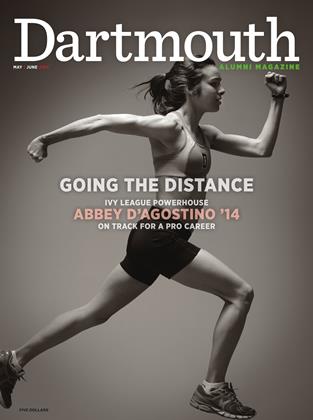FOUR YOUNG ALUMS OPEN UP ABOUT THEIR MULTIRACIAL HERITAGE AND HOW IT SHAPES THEM.
Whenever I've been called on to define my heritage, I smile and say, “I am african-american, Cherokee (Aniyunwiya) Native American, Chinese (Cantonese) American and English American." I excise nothing of myself. i claim the slave who was a mathematical genius; the storyteller, the quilt maker and the wise healer; the bilingual railroad laborer; and the farmer—regardless of the amount of melanin in any of their skins. I pay no attention to the pseudoscientific idea of blood quantum (the idea that race is a biological, measurable reality) and am uninterested in dividing myself into fractions, I am completely, concurrently and proudly all of my heritages.
From the time I was able to think about such things, I have considered myself both quadricul- tural and ana-racial (my personal neologism for “without race”). i am zero (raceless) and hoop (part of the peoples from all over the world). I think my parents might have been a little less comfortable in it, but I felt that four peoples had found space in my blood; thus, people of all bloods belonged in every space in general. I was comfortable at school not because i didn’t know who I was but because I did. And I knew who I was because I came from a strong family.
At my secondary school, melanin in an adult person’s skin most likely meant he or she was a menial laborer. In Hanover, melanin was a status symbol: It automatically meant you were an Ivy League student or a professor. Many nonwhite students felt uncomfortable in such a white space, even to the point of leaving the College. I was stunned by their reaction.
“i’ve never seen so much diversity in my life,” i would say. although my hometown of houston is an extremely diverse city, the parts of it in which I lived and moved were far whiter than Hanover and Dartmouth. With an Igbo professor and friends from Nepal and Albania, i felt as though i was on disney’s “it’s a Small World” ride.
At Dartmouth I saw both how much I had and how much I had missed. As a Cherokee girl whose prep school education meant I spoke three European languages, I looked wistfully at a fellow student whose upbringing as a diné on a reservation meant she was fluent in her people’s tongue. Who was the privileged one? Who was underprivileged? her school hadn’t taught ad- vanced math. No one in my family spoke Tsalagi. Both of us had mastered one world and sought to succeed in a second. Like many, maybe even all the nonwhite students at Dartmouth, we were seeking to be whole.
SHANNON JOYCE PRINCE '09
A senior fellow at Dartmouth, Prince is pursu- ing a joint J.D./Ph.D. in African and African American studies at Harvard.
“i pay no ATTENTION TO THE PSEUDO- SCIENTIFIC IDEA OF BLOOD quantum.”
 View Full Issue
View Full Issue
More From This Issue
-
 Feature
FeatureZoology
May | June 2014 By C.J. Hughes ’92 -
 Feature
FeatureGOOD HAIR
May | June 2014 By Ana Sofia De Brito ’12 -
 Feature
FeatureONE PLUS ONE EQUALS THREE
May | June 2014 By Yuki Kondo-Shah ’07 -
 Sports
SportsOut of Nowhere
May | June 2014 By SARAH LORGE BUTLER -
 OUTSIDE
OUTSIDEConfluences
May | June 2014 By MICHAEL CALDWELL ’75 -
 ON THE JOB
ON THE JOBKeeper of the Golden Gate
May | June 2014 By ALEC SCOTT ’89








